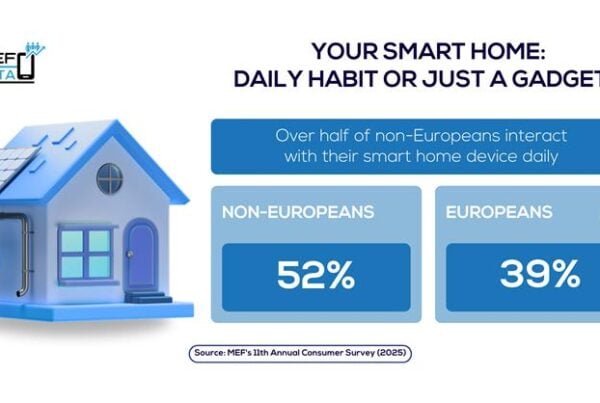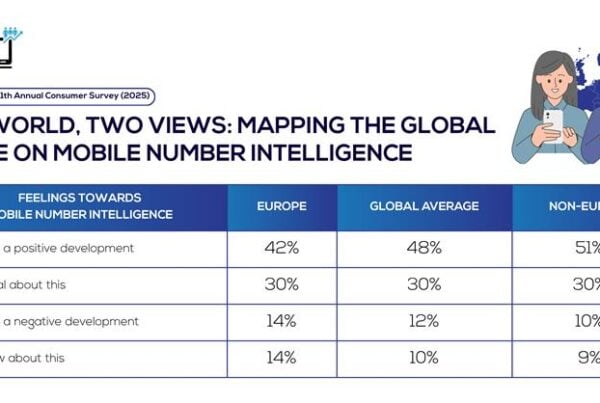Across North America and beyond, policymakers are taking new interest in how data, consent, and communication standards evolve. MEF Advisor Paul Ruppert explains how California’s latest privacy move signals a broader shift in digital governance and explores what’s driving that momentum.
A New Brushfire on the Regulatory Frontier
California’s latest “browser privacy” initiative may appear to be a noble act of consumer protection.

In practice, it’s something else entirely: the opening spark of what former FCC Commissioner Michael O’Rielly recently described at MEF’s Future of Mobile USA event as a “slow-burning brushfire” — one that periodically reignites in statehouses, consuming legitimate digital businesses in its embers.
As O’Rielly warned, each small regulatory fire starts with good intentions but poor understanding. California’s move to police how browsers track user data sits squarely within that pattern: an expansive attempt by a state to regulate a global internet function that operates far beyond its borders. The result? A collision between policy idealism and technological reality — and a potential repeat of what we saw with Quiet Hours and the state-by-state creep of TCPA-inspired messaging laws across the U.S.
“State overreach doesn’t stop at the border of California — it sets precedent for others to follow, and fast.”
As someone who has operated at the intersection of policy and commerce — in the halls of government and the engine rooms and front lines of global industry — I’ve seen this play before.
When regulators don’t understand the industry, they legislate against caricatures of it. And when industry fails to respond collectively, it risks surrendering the narrative entirely.
The alternative is to let each new “browser bill” or “texting statute” chip away at the legitimate, consent-based communications that power today’s digital economy.“
The Drift Becomes Contagious
In the last 12 months, MEF has traced this progression from state curiosity to state crusade. We’ve seen Oregon, Michigan, and Texas attempt to redefine “telemarketing.” We’ve analyzed how Supreme Court rulings have shaken the foundations of TCPA enforcement. We’ve watched the FTC draw red lines around censorship and speech — and now, California aims to govern what information users’ browsers can access, store, or transmit.
Individually, each action might appear benign. Collectively, they form a pattern of regulatory drift — one that could become contagious far beyond U.S. borders. The European Union’s Digital Markets Act and the U.K.’s Online Safety Bill share similar DNA: an instinct to legislate technology through the lens of fear rather than function.
Because California often serves as the legislative trend-setter, its approach to browser control will inevitably influence other states — and perhaps embolden transatlantic regulators seeking to assert “digital sovereignty.”
The danger is not privacy itself; it’s parochial privacy, where each jurisdiction creates its own bespoke definition of user consent, tracking, and communication timing. That fragmentation is the enemy of compliance — and, ultimately, of innovation.
As O’Rielly cautioned in Las Vegas, the outcome is not a race to the bottom, but a “race to be a pincushion,” where companies are pricked and penalized differently in every state. California’s law risks turning the open web into a patchwork of conflicting permissions — the “Quiet Hours Trap” of data governance.
From Passive Observation to Proactive Alignment
Given this writer’s experience navigating both the policy and commercial sides of the mobile services industry, I can attest that no amount of compliance engineering can out-code bad law.
Once legal exposure becomes subjective — once “opt-in” means one thing in Austin, another in Sacramento, and something else in Ottawa — technology cannot absorb the regulatory chaos.
That is why O’Rielly’s Call to Arms at MEF FOMUSA deserves more than polite applause.
His message was blunt: the industry has been “sitting on its hands,” hoping these fires burn out on their own. They won’t. California’s browser law is simply the next iteration of the same misunderstanding — this time extending from messaging consent into the entire architecture of digital engagement.
The good news is that the playbook for industry coordination already exists. O’Rielly pointed to the E-Commerce Innovation Alliance (EIA) and its partnership with MEF as the foundation for a stronger, unified advocacy front — one that can bridge regulatory dialogue between platforms, operators, and application providers. Together, such alliances can move the conversation from reactive litigation defense to proactive rule shaping.
This is not about lobbying for fewer rules; it’s about demanding smarter ones — regulations that distinguish between legitimate consent-based communications and genuine abuse. MEF’s role, and by extension the responsibility of every participant in the mobile ecosystem, is to ensure that policymakers understand the difference before they legislate it out of existence.
Coalescing Before the Next Wave Hits
California’s browser law underscores a larger truth: our industry is no longer just a target of telecommunications statutes — we’re now in the crosshairs of broader digital governance. And while U.S. state legislatures may lead the charge, their influence extends north and east. Canadian privacy reform, European AI oversight, and UK digital standards all orbit similar debates over consent, data control, and corporate accountability.
The drift is indeed contagious — but so can be the cure
Industry unity is the antidote to piecemeal regulation. MEF, working alongside the EIA and other associations, can convene a North American Digital Communications Working Group — a forum to align advocacy, educate policymakers, and coordinate standards before legislators and operating systems rewrite the rules in isolation.
This is the time to move from analysis to alignment, from observation to orchestration. The alternative is to let each new “browser bill” or “texting statute” chip away at the legitimate, consent-based communications that power today’s digital economy.
O’Rielly’s warning in Las Vegas was clear: “Politics is one of the cheapest and most valuable investments industry can make.” For those of us who build the bridges between commerce and communication, it’s time to invest — before California’s spark becomes a continent-wide fire.





